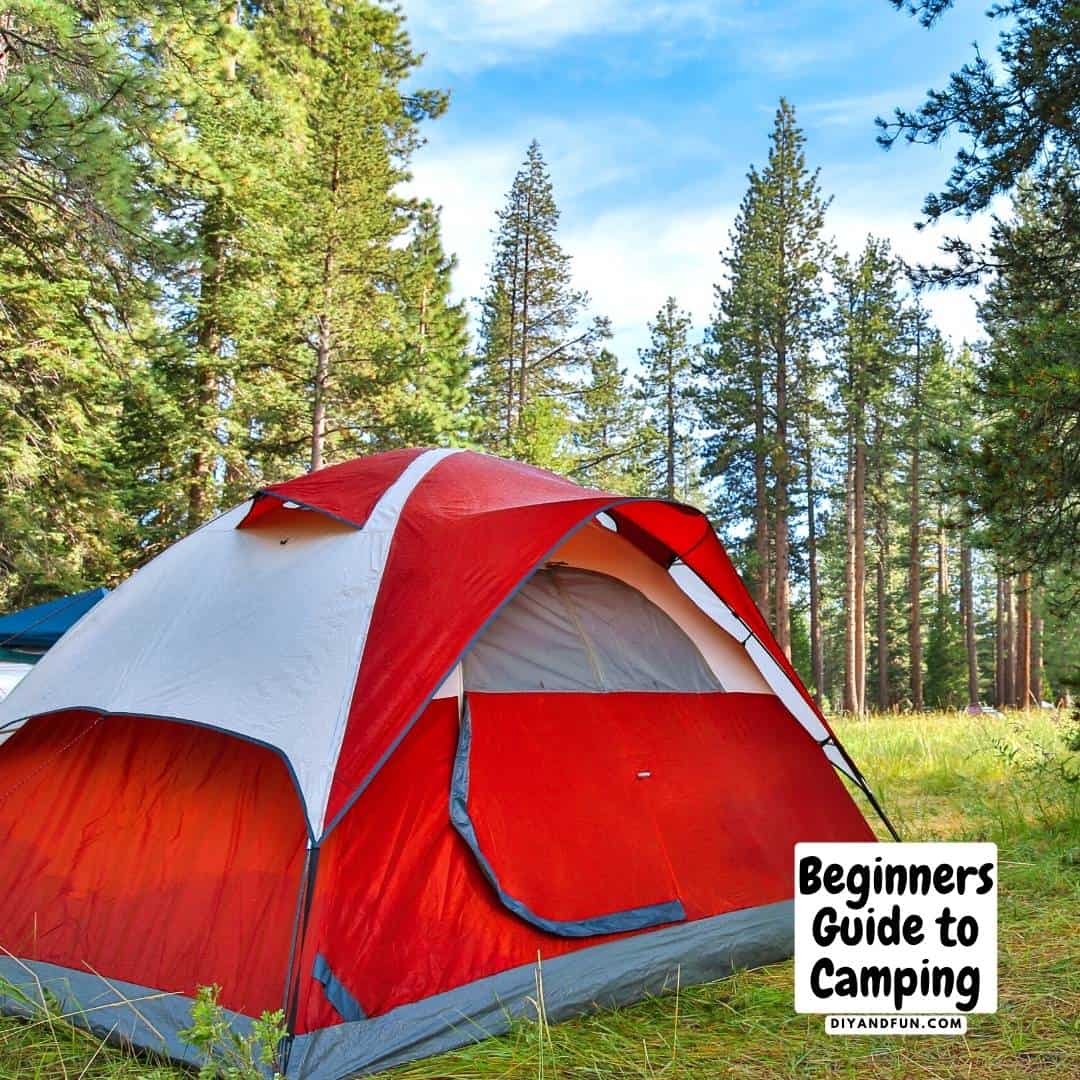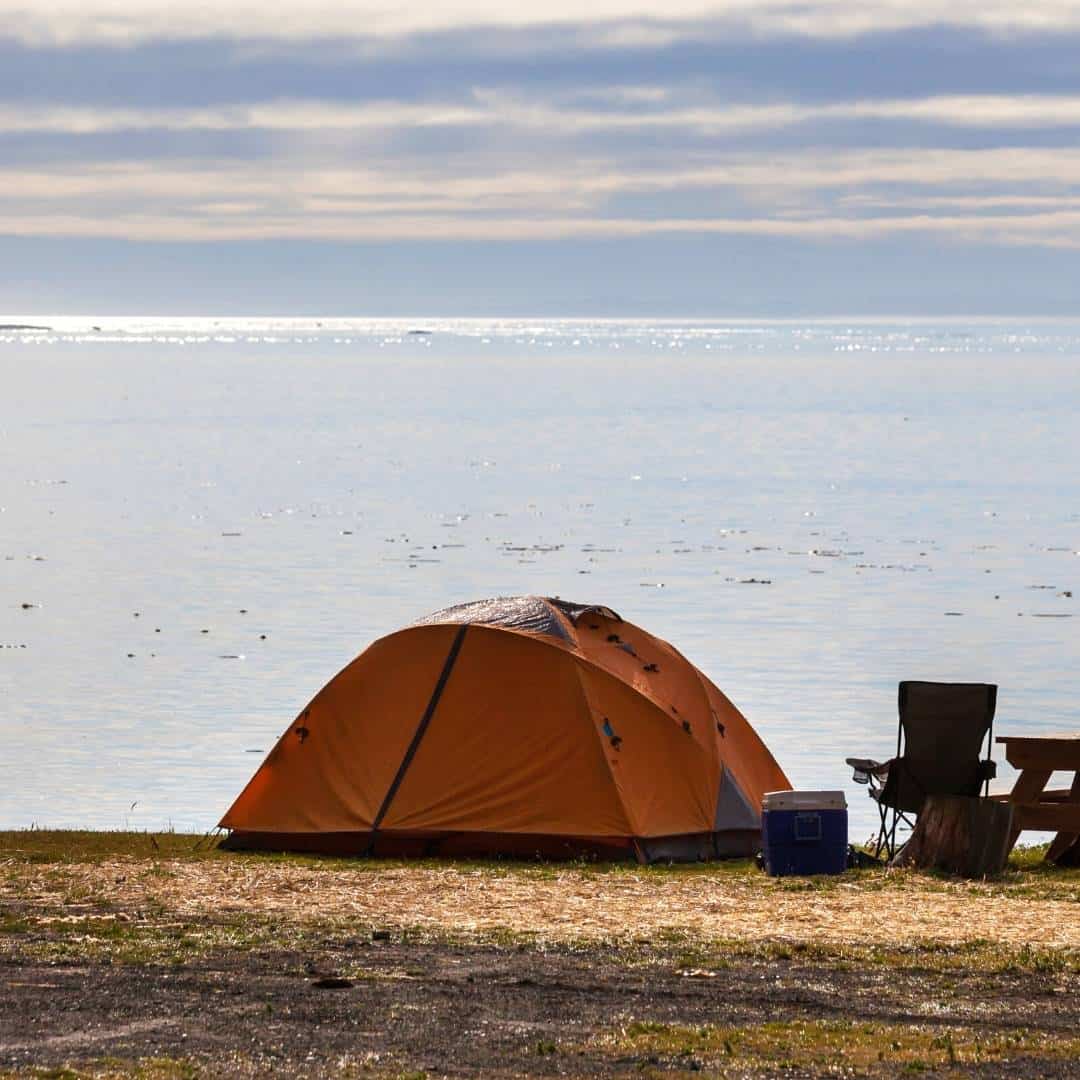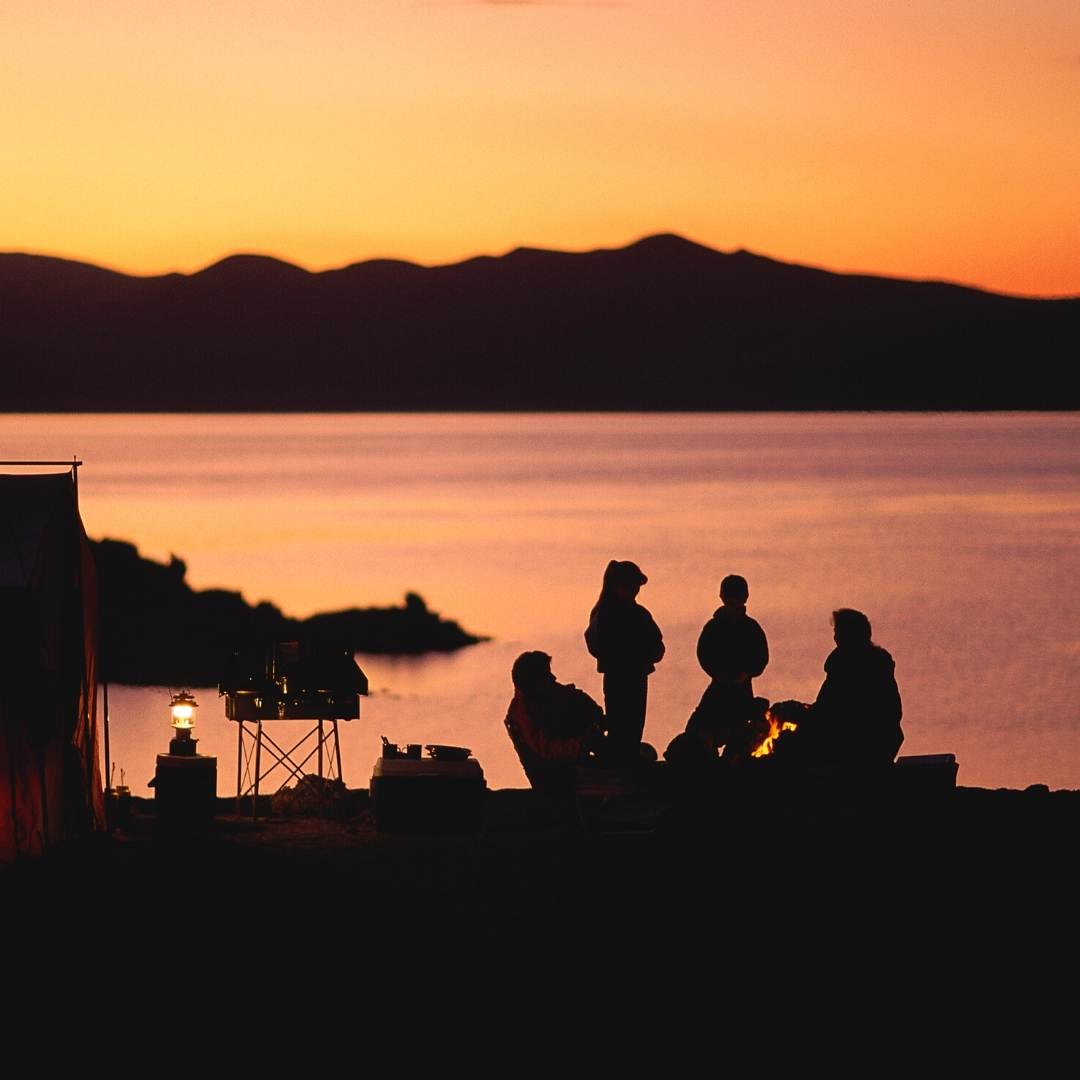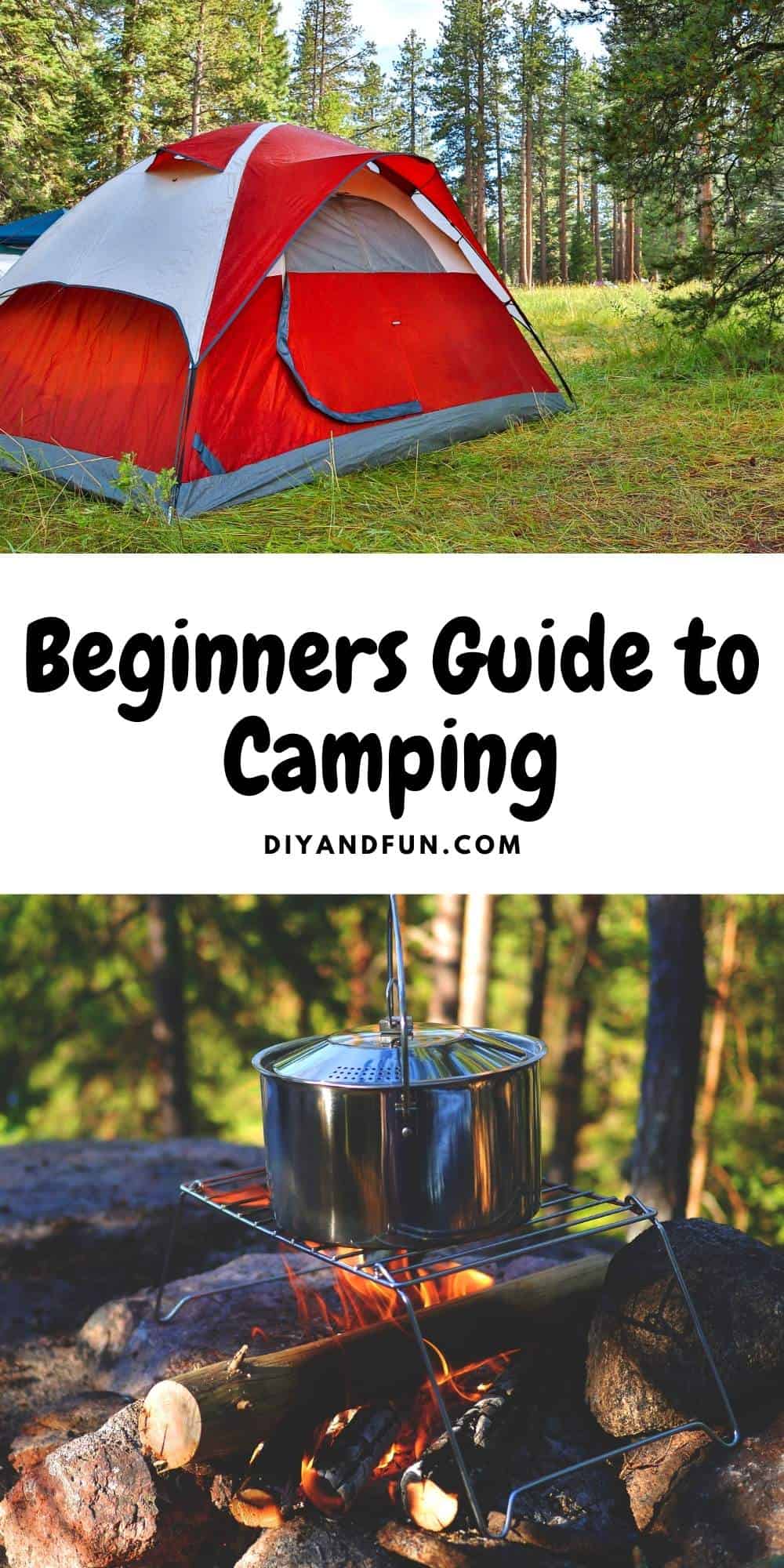Beginners Guide to Camping can help about anyone looking for a fun getaway.
This guide has helpful information for planning and enjoying that camping trip.

Beginners Guide to Camping
This guide will take you from planning to packing for that trip.
Also, this guide has some great tips to help you get the most from your trip.
Have you seen my Family Camping Essentials Checklist?
That checklist may be what you need to help you decide on what to pack for your trip.
Also, that checklist is one that you can download for later use
Camping guidebooks can be helpful while on your trip. You can find a variety of camping guide books here.
This article is especially for anyone asking how do beginners start camping.
Planning a camping trip can be a bit overwhelming if you have never done it before.
However, what you should know, is that planning a camping trip is really not all that invloved.
What you need to keep in mind while planning a camping trip is the purpose of taking that trip.
That is, if you are going on a camping trip to relax and do a bit of hiking, that should be your focus.
Once you have decided what you what to focus on the rest of the planning will start to fall into place,
You may also be asking what do I need for my first camping trip.
I suggest that you first decide where and when you will be camping.
This will help you make a list of what you need for your trip.
What you may want to think about is what you will not take on your camping trip.
For example, bringing a laptop or similar tech devices may be a useless idea.
This is because many camping locations do not have internet or may have really faint signals.

Tips for planning a camping trip.
Start panning your trip by deciding on when you be going.
Keep in mind that many state and national parks may book out early which means that you may need to be flexible too.
There are five main steps to consider when planning that first camping trip once you have decided on when you will go on your trip.
- Planning a camping trip. This includes that time of the year and adjusting to the weather.
- Selecting a location for camping. Will you be going local, to a state park, or somewhere adventurous for example.
- Alternative Ways to Camp. Did you know that camping does not always mean that you need to bring a tent?
- What to pack for a camping trip. Essential items that you are more likely to need for your camping trip.
- What else you need to know about camping. The odds and ends that you may need to bring with you.
Planning a camping trip. Consider Is The Time Of Year.
The time of the year has an effect on where you sleep and what you wear.
As far as where you will sleep, consider how cold it may get and if it could rain.
Then pack blankets, sleeping bags, waterproof tents and a waterproof tarp to cover your camping area in case of rain.
Also pack what you will wear according to the weather
I suggest that you consider packing enough clothing for more days and nights than you plan on being away for.
Anything can happen from getting wet to some sort of a delay getting home and you will happy with extra planning.
- Clothing that meets the weather challenge but is not constricting is best.
- If you are going to be in front of a campfire, loose sleeves or scarves should be avoided.
- Also, bring clothing that covers skin from tick bites in the woods.
👉Be sure to follow us on Facebook, Pinterest, and Instagram.
Subscribe to our Weekly Newsletter.
You may also be interested in these ideas.
Selecting a location for camping
I suggest that you do a bit of research first.
Ask people that you know who camp for suggestions on where you should go camping.
Here is what you may want to ask about The Campground Itself.
- As a beginner you may want to stick to an established campground that has the facilities and more that you may need.
- Ask about the nearest ranger or police station and hospital. (Once you arrive, be sure to let the nearest ranger station know that you are there).
- You should also ask about the regulations concerning building a fire and trash removal.
- Ask about cooking options, are campfires or small grills okay? Ask about the rules for cooking too.
- A good question to ask is are There Shower And Toilet Facilities There Or Nearby?
- Lastly, consider amenities such as hiking and biking trails, lakes, and other activities.

Alternative Ways to camp.
Tent camping is probably the most well known method of camping. Tents range from the very basic two-man tent to enormous ones or sprawling tent networks. If you choose to purchase a tent (you can often rent or borrow one) , make sure it is easy to assemble and find out what you will need to bring with you to do so.
Other ways to camp besides tent camping.
- Car camping: the simplest way to camp. Comfort levels, of course, depend on how well-equipped your car or van may be for sleeping.
- Pop-up camping: Pop-up campers are a great crossover between RVs and tents. Most have electric and water hookups, so you can wash up and even run your television and microwave. Some have tiny stoves inside. High-end ones even come with air conditioners. Purists might not consider this “real camping,” but who cares?
- Alternative tents such as the 'glamping' variety.

What to pack for a camping trip.
Download my Family Camping Essentials Checklist which is more detailed than the list below.
Basic items to pack for camping.
- Food
- Beverages, including water and water purification tablets if needed.
- Clothing (in waterproof bags, such as trash bags) – be sure to bring at least one pair of long pants, even if it is the middle of summer!
- Personal items, such as toothpaste, shampoo, deodorant, etc.
- Bug repellent/ Sunscreen
- First Aid Kit
- Sleeping bag and a pillow
- Flashlights and extra batteries
- Matches or lighters
- Cookware, silverware, etc.
- Dishpan and soap for washing
- Trash bags
- Several zipper-type plastic bags, sandwich and quart size
- Towels – both paper and cloth
- Battery operated radio
- Basic tools – hammer, axe, hand saw, pocketknife
- Firewood, if not available on site
- Fire starters, such as newspaper
- Toilet paper, if no flush toilets on site
- Tarpaulin/Tarps
- Kerosene lantern and cook stove, if desired.

What else you need to know about camping.
Folks who have done this before know that you should plan you meals in advance.
Stick to nonperishable items or frozen meals (make extras when cooking and freeze them away to take on a trip).if possible
Since you are going camping to relax, bring fold up chairs with you.
Also, bring what you will need for activities such as hiking.
If you need it for the activities (such as a backpack with essentials for hiking) bring that with you.
What you may not know about camping.
There are certain unwritten rules that campers abide to.
Those rules include respecting the other campers, cleaning up after yourself, putting out your fires and respecting the nature around you.
Did you know about these camping alternatives?
Camping in a resort campground:
Truly the best of both worlds and may be an excellent choice for families who want to vacation on a budget. Many of these campgrounds have swimming pools and kids’ programs and amenities like showers and flush toilets. It’s like staying in a hotel, but you bring your own room.
Camping in a park campground:
Typically not as well-appointed as a resort campground, but less expensive. These usually provide showers and flush toilets, though it may be a long walk to get there. Many have electric and water hookups for pop-ups and RVs.
Primitive camping:
For the truly adventurous, this entails leaving behind anything you cannot carry and carrying everything out when you go home.
Beginners Guide to Camping, a simple guide for planning a camping trip, what to bring with you, and how to have fun.






